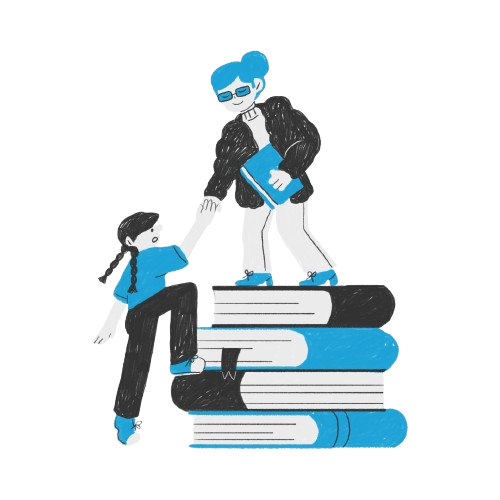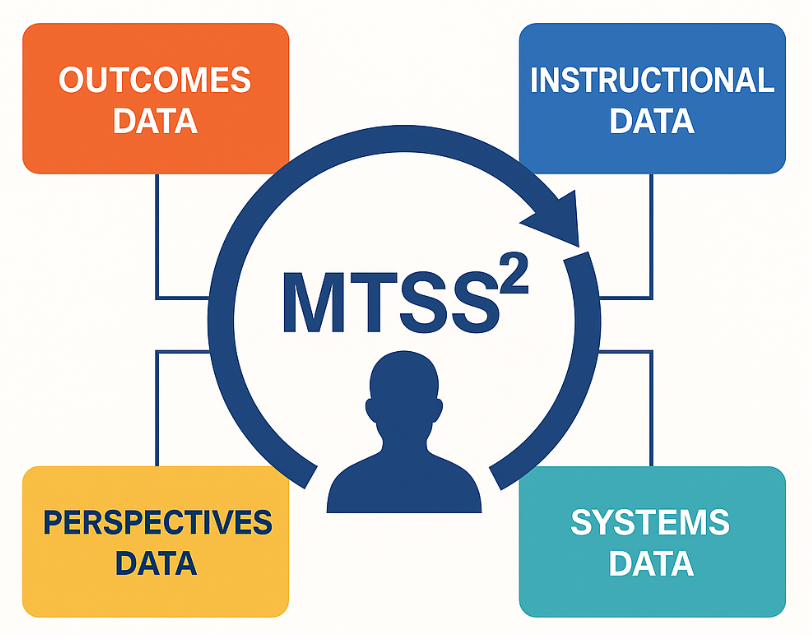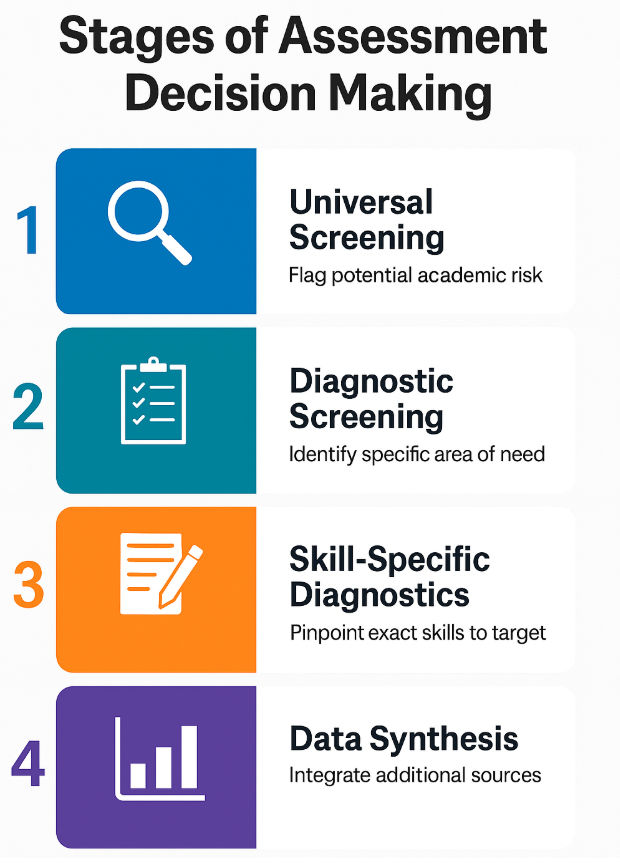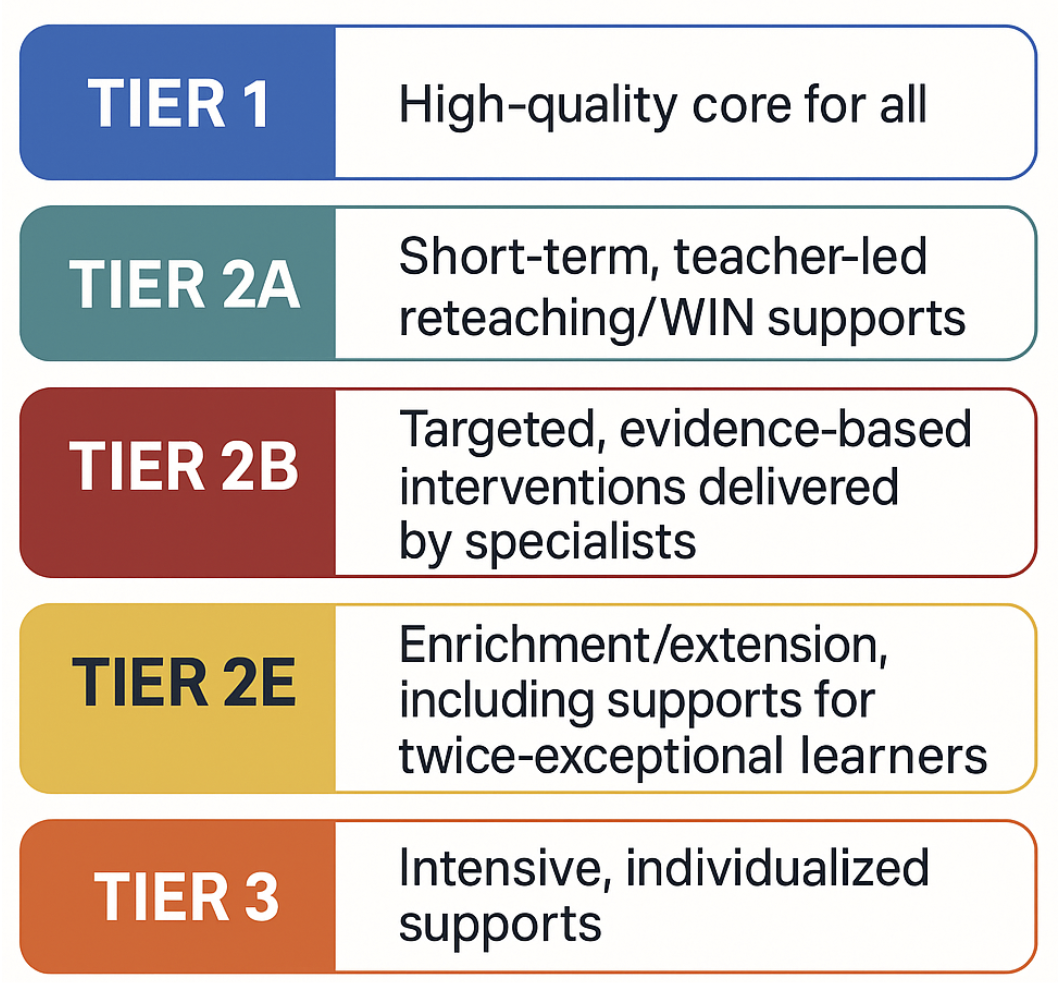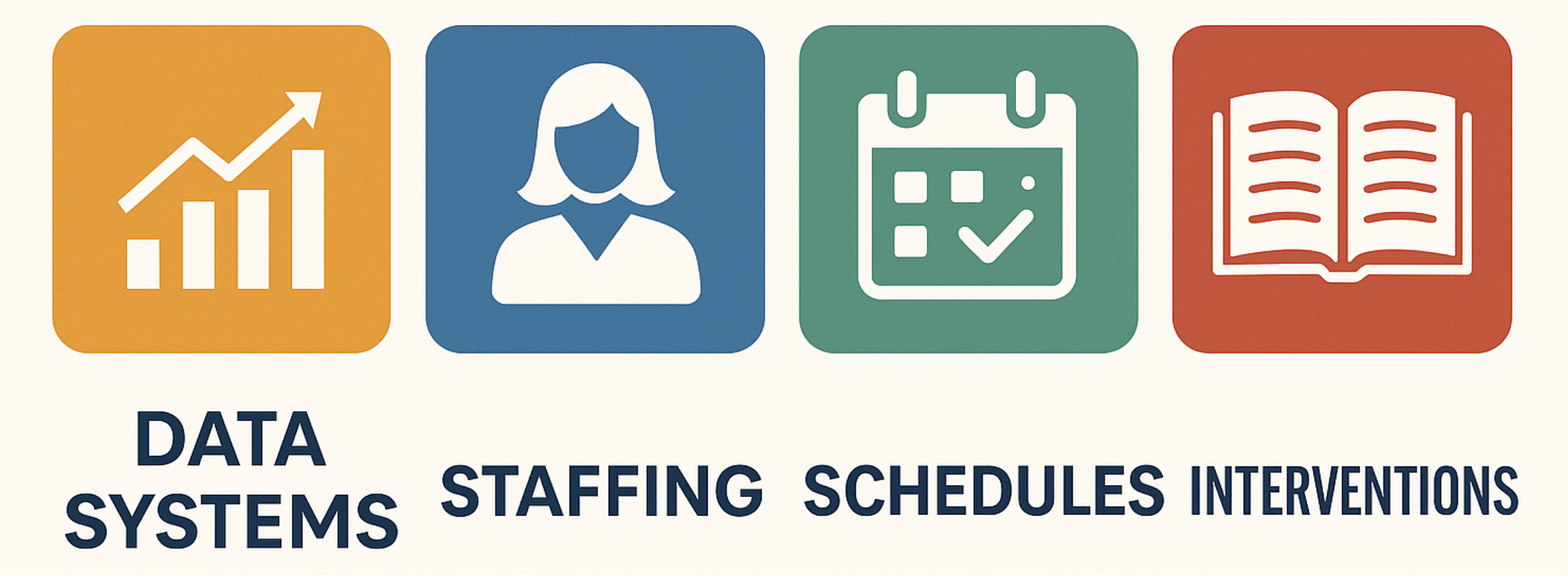
MTSS² Framework™: How to Fix Your Broken Pre-Referral Process!
For years, I watched well-intentioned pre-referral processes do the opposite of what schools hoped. They slowed support. They made teachers “prove” a problem before acting. They turned caring adults into document chasers, while students quietly fell further behind. What started as a path to help became an obstacle course.
MTSS² Framework™ is the answer to that problem. It’s MTSS squared for systems of support AND student success. It was built to get the right data in the right order so teams can move from guessing to targeted action. In this post, I’ll share why the old way breaks down, what MTSS² changes, and how any school can start tomorrow.

If you’ve sat through a pre-referral meeting, you know the pattern:
The Pre-Referral Trap (And Why It’s So Hard to Escape)
A student is struggling.
Meetings multiply before instruction changes.
The student waits.
We start collecting “evidence.”
Weeks (sometimes months) go by.
Pre-referral wasn’t built for a world of unfinished learning, staffing shortages, and increasing outcome gaps. It tends to:
Delay help while teams “gather data.”
Over-test without clarifying next steps.
Fragment effort because people, time, and tools aren’t aligned.
Prioritize forms over learning, where red tape wins, progress loses.
Delay legal obligations such as Child Find.
MTSS² Framework™ flips that script. It doesn’t add another initiative. It tightens the system you already have so it works for students and for the adults serving them.
The MTSS² Promise: Intentional, Layered, Efficient
At its core, MTSS² is a way of thinking and working that keeps teams focused on decisions that matter:
Intentional
Every step ties to a clear decision with no data for data’s sake.
Layered
Information moves from broad to precise, so you test less and teach more.
Efficient
Adults spend their time where it counts: instruction and feedback.
When schools adopt this approach, teachers stop asking, “What else do you want me to try?” and start saying, “Here’s what we’ll teach next and how we’ll measure it.”
The Four Data Lenses
MTSS² balances four types of data so you avoid tunnel vision:
When teams look through all four lenses, they make better, faster decisions and spend less time arguing about anecdotes.
1. Outcomes Data:
State tests, benchmarks, graduation indicators
2. Instructional Data:
Curriculum-embedded tasks, unit assessments, formative checks
3. Perspectives Data:
Student, teacher, and family voice (surveys, interviews, observations)
4. Systems Data:
Staffing, schedules, materials, and processes that either enable or block equity
The Four Stages of Assessment Decision-Making
Here’s the heartbeat of MTSS². Each stage answers a different question; together, they prevent over-testing and guide precise instruction.
The four stages move teams from broad identification to targeted action fast.
Stage 1. Universal Screening
Guiding question: Who may need support? They flag risk quickly and predict who might struggle without pretending to diagnose a root cause.
Stage 2. Diagnostic Screening:
Guiding question: Which domain or subdomain needs attention? This is where teams move from “Who?” to “What?”.
Stage 3. Skill-Specific Diagnostics
Guiding question: Exactly what do we teach next and how do we group students? They’re essential for Tier 2B and Tier 3, where precision matters most.
Stage 4. Comprehensive Data Synthesis
Guiding question: What is the most equitable, well-rounded plan? We integrate everything (e.g. assessment results, classroom performance, WIN block data, ACCESS, attendance, SEL, behavior notes, and family/teacher input) to finalize or revise support.
From Tiers to Action
Traditional tiers still apply, but MTSS² names what schools actually do:
Tier 1:
High-quality core for all
Tier 2A:
Short-term, teacher or tutor led for those at low grade level
Tier 2B:
Targeted, evidence-based interventions delivered by trained interventionists for those below grade level
Tier 2E:
Enrichment/extension, including supports for twice-exceptional learners for those above grade level
Tier 3:
Intensive, individualized supports with specialists or special educators for those significantly below grade level
Making It Work: Align People, Time, Tools, and Data
Even the best assessment model fails if logistics fight the work. MTSS² helps leaders lock the pieces together:
Staffing
Define roles across general education, special education, intervention, and student services.
Stand up student-focused teams with clear norms and decision protocols.
Schedules
Build systems grids that align courses, intervention blocks, and adult time.
Protect collaboration time for real problem-solving, not status updates.
Materials
Match interventions to diagnosed skills; monitor fidelity and outcomes.
Use a short list of evidence-based programs to avoid scattershot efforts.
Assessments
Use the four-stage cycle; stop collecting data that doesn’t answer a decision.
Keep progress monitoring lean, consistent, and visible to everyone who needs it.
What Leaders Notice When MTSS² Framework™ Takes Hold
Faster help. Students get support weeks earlier.
Cleaner meetings. Less storytelling, more decisions.
Fewer assessments, better insights. Each tool earns its place.
Real coherence. Staffing, schedules, and materials finally support the same plan.
Equity in action. Plans reflect achievement, engagement, attendance, language, and context.
Statutory compliance with Child Find obligations
If your teams are spending more time collecting evidence than teaching, you’re not alone. Many schools find themselves stuck in systems that value paperwork over progress. MTSS² is designed to change that story. It’s not “one more thing” on a crowded plate. It’s the throughline that brings together instruction, professional learning, and student support into a single, coherent approach.
That’s where we come in. Our team partners with schools and districts through multiple pathways to meet leaders where they are and build capacity that lasts:
Ready to Move from Complacency to Impact?
Graduate-Level Courses
Credit-bearing courses that equip principals, teacher leaders, and coaches with the frameworks and tools to lead MTSS² with confidence.
Workshops and Institutes
Interactive sessions (onsite or virtual) that help educators move from theory to practice using evidence-based tools, reflection protocols, and action planning.
Onsite Technical Assistance
Hands-on partnership with schools and districts, including coaching, data team facilitation, and implementation planning to align staffing, scheduling, interventions, and data systems.
Workbook-Guided Team Support
Collaborate with our facilitators to work directly through In Support of Student Data: A Data Workbook for MTSS Teams. Together, your team builds a personalized approach that uses the workbook’s tools and protocols to design an MTSS² plan tailored to your school or district.
Online Learning & Toolkits
Flexible, self-paced modules and digital resources that extend the learning. Teams can revisit strategies, reflection tools, and planning templates as often as needed.
Leadership Coaching
Personalized coaching for principals and district leaders to navigate challenges, sustain systems change, and keep equity at the center of every decision.
With MTSS² Framework™, schools move from compliance-driven processes to impact-driven systems.
Click the button below to go back to the main Education page

